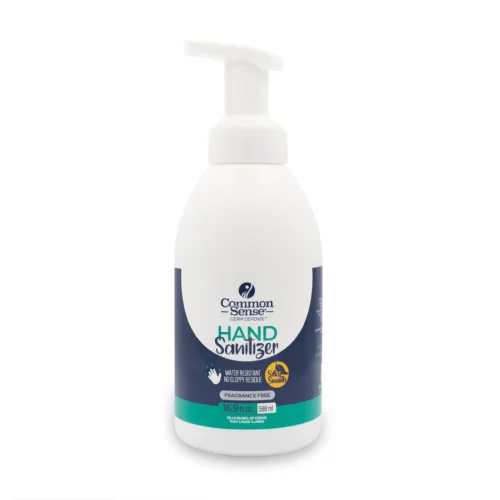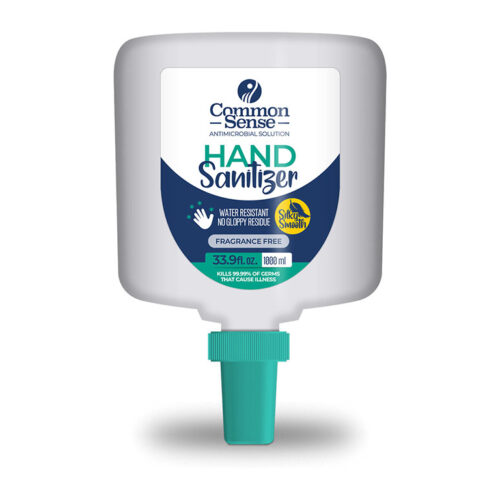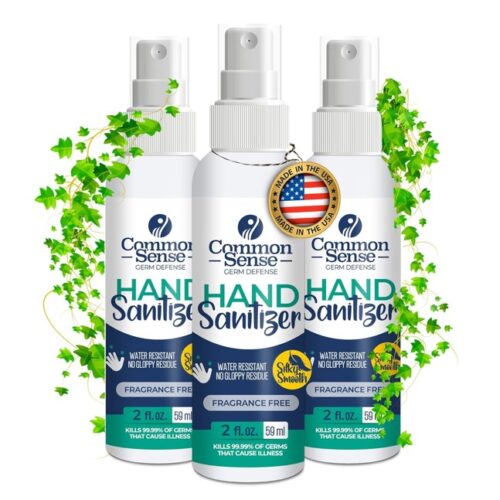When we talk about health and safety, especially in today’s world, our alcohol-based hand sanitizer stands out as a powerful ally to cleanse our hands and shield us from illness-causing germs. But a question often arises among our community: after application, how long does its protection last? Furthermore, is there such a thing as expired hand sanitizer, and does its efficacy diminish as time passes? We’re here to explore these inquiries concerning hand sanitizers to better understand their durability and effectiveness.
Alcohol-based hand sanitizers remain effective for 2 to 3 years from their manufacture date. However, they can begin to lose potency after their expiration date, gradually reducing their effectiveness in killing germs and bacteria. Therefore, it’s crucial to check the expiration date and ensure the sanitizer contains at least 60% alcohol for optimal protection.
What Is Antibacterial Hand Sanitizer And How Does It Work?
Hand sanitizer is a liquid or gel that is used to clean hands when soap and water isn’t available. It usually contains alcohol or other chemicals that kill or disable germs and other microbes.
Hand sanitizers work by killing germs on the skin. They often contain ethanol or ethyl alcohol, which helps to kill bacteria. Some hand sanitizers also contain triclosan, a chemical that can help to kill bacteria and fungi.
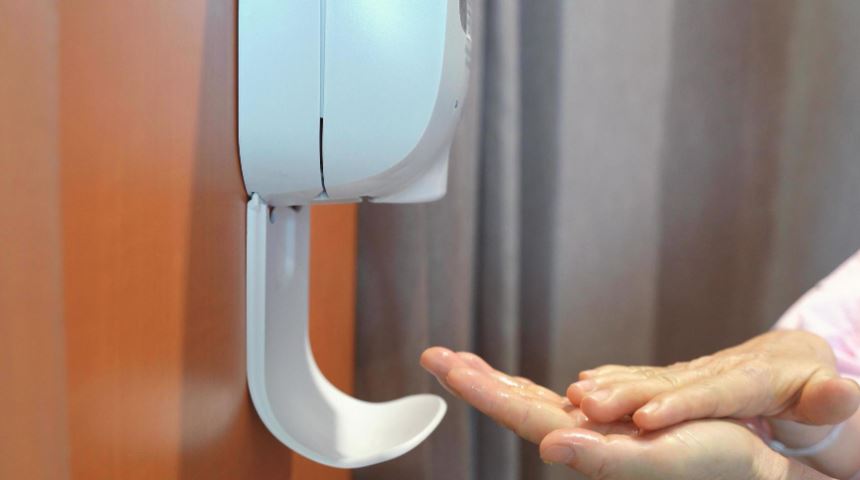
How Long Does Hand Sanitizer Last After It’s Applied?
Typical hand sanitizer works while it is wet. Once it dries it does not have any residual effect. This is an important point to understand. With any of the leading brands of hand sanitizer that are sold on the market today, once you have rubbed the product in and it has dried on your hands, the germ killing effect of the product is over.
The next thing you touch that may have been contaminated by viruses or bacteria will have an opportunity to infect you or others. They do offer immediate results but do not provide long lasting protection.
For a better understanding, let’s consider what happens when you apply hand sanitizer to your skin.
The first thing that is actually occurring when a disinfectant hand sanitizer is applied to a pathogen is that the cellular wall of the pathogen immediately begins to be destroyed. This process then allows for the disinfectant to enter the cell. As a result, more of the cell is destroyed until the entire cell is terminated. This is known as the process of “lysis”.
What About Bacteria?
When a bacterial cell is exposed to a solution of alcohol, the amphiphile alcohol molecules bond with the molecules of the bacteria’s cell membrane, making it more soluble in water. This causes the cell membrane to lose its structural integrity and fall apart. As it grows weaker, more alcohol molecules are able to enter the cell, and the proteins suspended within the membrane begin to pour out of the weakened membrane. The alcohol molecules then begin to dissolve the proteins through a process known as denaturation.
By forming bonds with the alcohol molecules, the amino acids in a given bacterial protein begin to lose their structure, ceasing to function as a result. Because the bacteria cannot survive without those protein functions, the cell dies quickly, essentially being melted apart from the inside and out.
Will Hand Sanitizer Work On A Virus?
For a virus, sanitizers work by disrupting the virus’s outer coat. For bacteria, they work by disrupting the cell membrane. According to the CDC, hand sanitizers are effective when they contain at least 60 percent alcohol.
While hand sanitizer can kill viruses, it’s important to note that it does not work immediately. It takes about 15 seconds for the sanitizer to work, so it’s important to be patient and thoroughly apply and continue to rub the product all over your hands for 20 seconds before moving on.
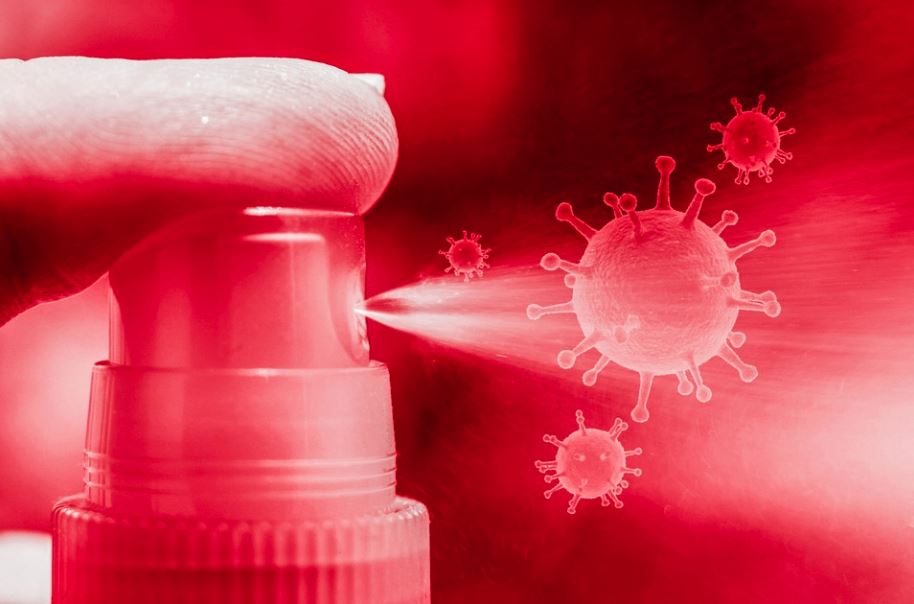
Common Sense Hand Sanitizer has a unique antimicrobial formula that once dry, bonds to the skin adding a protective layer that inhibits microbial growth.
The Common Sense Difference Is Long Lasting Protection
Common Sense Hand Sanitizer has added ingredients that once our product dries, our antimicrobial technology bonds to the skin adding a layer that inhibits microbial growth. This long lasting alcohol based hand sanitizer forms a protective coating that won’t wash off with soap and water. When it is applied, Common Sense kills 99.9% of germs right away while forming a persistent layer of protection that goes on to kill new germs you encounter for hours afterward. When you use Common Sense long lasting hand sanitizer you can remain protected with as few as 3 applications per day. Learn more about how our product works.
Does Hand Sanitizer Expire?
Yes, hand sanitizers do have an expiration date. The FDA requires that all hand sanitizers have an expiration date of no more than three years from the date of manufacture. After that time, the efficacy of the product begins to decline.
Most hand sanitizers have a shelf life of around 3 years but the more alcohol it contains, the longer it will last. If it’s a high alcohol-content hand sanitizer, then it might last up to 5 years. However, if it’s a low alcohol-content hand sanitizer, then it will only last for about 2 years.
Does Hand Sanitizer Lose Its Effectiveness Over Time?
Yes, hand sanitizer can lose its effectiveness over time. This is especially true if you do not store it in a cool, dry place. It’s important to keep your hand sanitizer in a place where it will not be exposed to direct sunlight or high temperatures. If you do not store it properly, it can lose its efficacy and might not work as well when you need it.
Are There Any Other Factors That Can Affect Hand Sanitizer’s Lifespan?
Yes, there are other factors that can affect how long hand sanitizer lasts after it’s been applied. For example, if your hands are dirty or greasy, the hand sanitizer might not work as well. This is because dirt and oil can act as a barrier and prevent the hand sanitizer from coming into contact with all of the microbes on your skin.
How Long Should You Rub Hand Sanitizer Into Your Hands?
You should rub hand sanitizer into your hands for at least 20 seconds. This will give the sanitizer enough time to kill any harmful bacteria or viruses on your hands. Be sure to get both sides of your hands, in between your fingers and your fingernails. Missing a spot on your hands will lessen the effectiveness of the sanitizer.
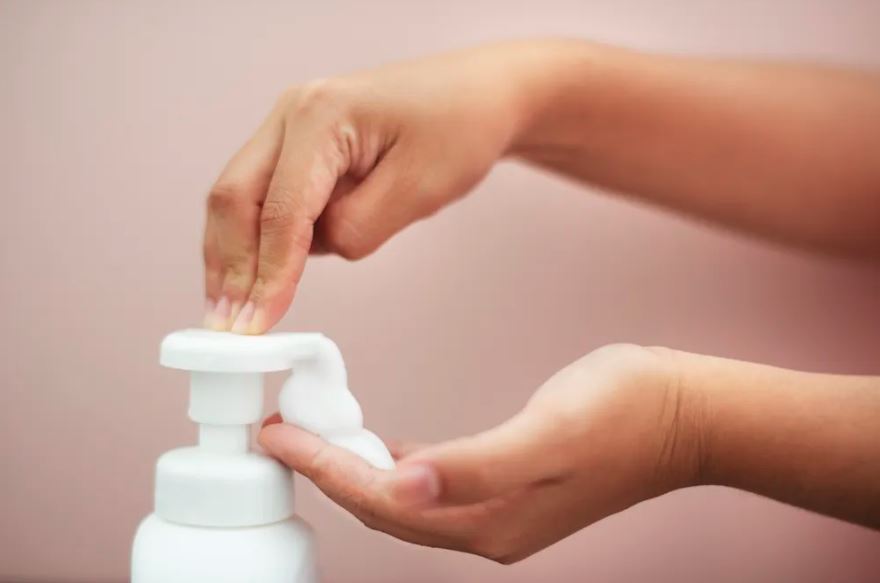
How Can You Make Sure Hand Sanitizer Lasts As Long As Possible Once Applied?
Once you’ve applied hand sanitizer to your hands, be sure to keep them away from water. This will prevent the sanitizer from being diluted before it has had a chance to dry and ensure it will work to kill germs, as intended.
If you’re looking for a hand sanitizer that will continue to work killing germs long after it’s been applied, look no further than Common Sense! Our unique formula is designed to bond with the skin and provide long-lasting protection against harmful bacteria and viruses.
Common Sense Hand Sanitizer Offers Long Lasting Protection
So, how long does hand sanitizer last after it is applied? The answer depends on the type of hand sanitizer that is used. Alcohol-based hand sanitizers work to kill germs on your skin after they are applied while they remain wet. Once dry, they are no longer effective at killing new germs. However, if they are not stored properly, these products can lose their efficacy over time. If you’re looking for a hand sanitizer that will last a long time after it’s been applied, Common Sense is here for you! Our unique formula is designed to bond with the skin and provide long-lasting protection against harmful bacteria and viruses. Order your Common Sense today!
Frequently Asked Questions
Q: Does alcohol-based hand sanitizer work as well as soap and water?
A: Alcohol-based hand sanitizers work by killing the majority of germs on your hands. They are effective against most common bacteria and viruses, including the flu virus. However, they are not as effective against spores and some resistant strains of bacteria. Soap and water are still the best way to clean your hands for the best hand hygiene.
Q: Should I put isopropyl alcohol in my homemade hand sanitizer?
A: No. Putting isopropyl alcohol in your homemade hand sanitizer will not make it more effective at killing germs. In fact, it could actually end up making your hand sanitizer less effective, as well as more harmful to your skin.
CDC does not recommend producing, using, or selling homemade hand sanitizer products because of concerns over the correct use of the ingredients and the need to work under sterile conditions to make the product.
The Centers for Disease Control and Prevention (CDC) recommends using hand sanitizer with at least 60% ethanol or ethyl alcohol, as these ingredients are proven to kill a wide range of germs effectively. Isopropyl alcohol, on the other hand, is only effective at killing a limited number of germs, and it can also be harmful to your skin if used in high concentrations.
Q: Should I use alcohol based hand sanitizer if my hands are visibly dirty?
A: It is not recommended to use alcohol sanitizer if your hands are visibly dirty. In fact, using alcohol based hand sanitizer in this situation can actually do more harm than good.
Soap and water are more effective than hand sanitizers at removing certain kinds of germs like norovirus, Cryptosporidium, and Clostridioides difficile. Hand sanitizers also may not remove harmful chemicals, such as pesticides and heavy metals like lead.
Q: What is the minimum alcohol concentration for effective hand sanitizers?
A: The alcohol concentration for effective hand sanitizers is 60% or greater. The Centers for Disease Control and Prevention (CDC) recommends using an alcohol-based hand sanitizer that has a minimum alcohol concentration of 60% if soap and water are not available. Alcohol-based sanitizers can quickly reduce the number of germs on your hands, but they are not 100% effective.

